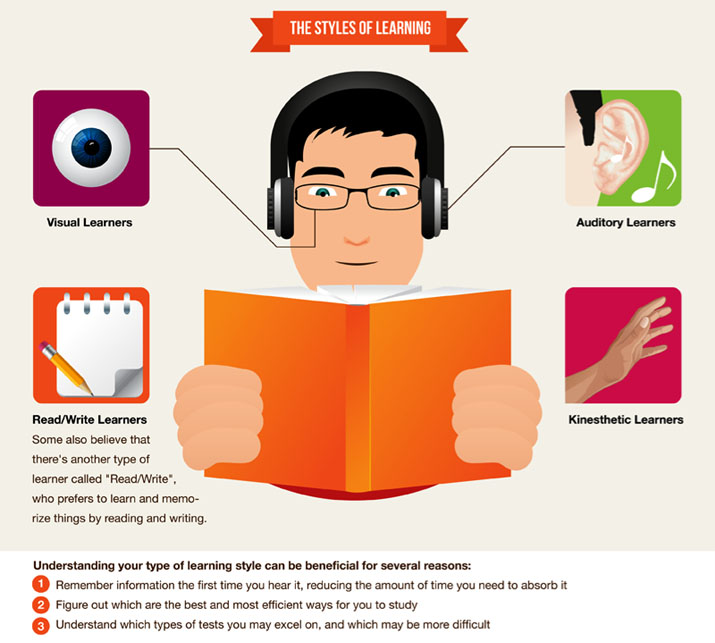Tools to Improve Communication, Reading, Memory and More – For All Learning Styles
If your child struggles with a speech or communication disorder, it doesn’t mean that school assignments, homework, and even learning at home have to suffer. No matter which learning style your child seems to gravitate towards the most, there are tools to improve communication and reading skills – making the most of homework, studying, and even classroom participation.
Tools to Improve Communication: Visual Learners
Kids who learn best through visual cues and clues might struggle in a classroom setting where lectures, oral directions, and other auditory skills are used most often. The following tools can be used both in and out of the classroom.
- Highlighting – Regular ink highlighters work great for reviewing notes, but even younger kids can use highlighters to reinforce directions. Have your child use a highlighter to emphasize directions on worksheets or try these flag highlighters to mark pages in books or notes.
- Picture Flashcards – If your visual learner needs to remember something that is usually auditory in nature, try pairing the verbal cues with picture flashcards. Find pictures that can be associated with names of people, lists of steps in a direction, or anything else he or she needs to recall.
- Diagram It – Encourage your child to draw pictures and representations of things he hears. Pictures can replace words whenever possible and you can facilitate these habits by supplying your child with different colors of pens and pencils for added emphasis. Charts can be created for homework, chores, or even speech therapy homework.
Tools to Improve Communication: Auditory Learners
Auditory learners usually have good receptive language skills – they benefit most from hearing instructions read and prefer verbal activities over many others.
- Read Aloud – Read aloud with your child and encourage your child to read aloud to himself as it can reinforce the information being read. Your child can also read aloud and record it to play back later as an extra auditory enforcement tool.
- Eyes Closed, Mouth Open – Have your child close her eyes and recite aloud what she needs to remember (i.e. spelling list). Closing the eyes helps to quiet a competing sense and lets the auditory learner focus on the verbal aspect of the task.
- Make Some Noise – Some auditory learners feel more comfortable when there isn’t silence. Allow for light background music during homework time. Check out this video about some fascinating research done about the effects of integrating music in the classrooms.
Tools to Improve Communication: Kinesthetic Learners
These learners seem to do best when they can experience the world hands-on. They tend to be very drawn to tactile experiences and need to physically move in order to establish stronger memory connections.
- Stress Balls – Not just for the office cubicles, stress balls can be discreet tools kids can use to release some of that physical energy. Try giving your child a stress ball when he reads to himself, studies math, or does any other particularly challenging task for your child.
- Clay Conversations – If your kinesthetic learner struggles with conversation skills, provide a large clump of homemade clay on a plastic placemat while you work on those language skills – she might just be more willing to talk if her hands are busy, too. You can also let your child work the clay with her hands while you help her orally review her history assignment, practice reciting a poem for class, or work on any other speaking assignment.
- Bounce the Ball – Even learning the ABCs suddenly became much easier for one of my boys when I added in a bouncy ball. Every time he bounced the ball he said the next letter. He was able to move, create a rhythm in his speech to match the rhythm of the bouncing, and his processing abilities increased dramatically.
Children with speech and communication disorders might find more challenges in and out of the classroom, but using tools like these can help minimize those challenges and maximize their learning opportunities. Understanding individual learning styles, working with teachers and SLPs to develop strategies, and supplying an extra dose of patience are all needed in the process.





Hi Shari, Thanks for your question! Here are some articles with music & game suggestions. To build reading skills with music instruction, you could follow the words while you are singing them. Enjoy!
Homemade musical instruments:
http://www.speechbuddy.com/blog/speech-therapy-techniques/make-some-noise-homemade-instruments-for-kids-and-music-therapy/
Music as a Speech Therapy Tool:
http://www.speechbuddy.com/blog/speech-therapist/music-is-a-terrific-speech-therapy-tool/
Are there musical instruments/programs that help with general reading skills for preschool and elementary age children?